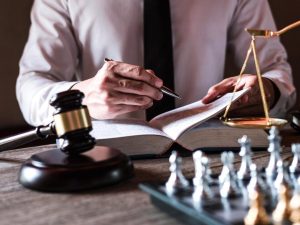How Long Does Jury Selection Take
Jury selection is the process through which a panel of potential jurors is chosen to hear a trial and ultimately render a verdict. This process is fundamental to upholding the principle of a fair trial, as it ensures that the jurors are unbiased and capable of rendering an impartial decision based solely on the evidence presented in court.
Understanding Jury Selection
The Importance of Jury Selection
Jury selection is often regarded as an art form within the legal world. The composition of the jury can significantly impact the outcome of a trial, as different jurors bring unique perspectives, biases, and experiences to the table. Attorneys on both sides strive to select jurors who are most likely to be sympathetic to their arguments, making jury selection a critical strategy in legal proceedings.
Factors Affecting Jury Selection Time
The time it takes to complete the jury selection process can vary widely depending on several factors. These include the complexity of the case, the size of the jury pool, and the strategies employed by the attorneys involved.
Steps in the Jury Selection Process
Summons and Questionnaires
The process begins with the issuance of juror summons. Potential jurors are chosen at random from voter registration lists or driver’s license databases. These individuals receive summonses to appear in court for potential selection.
Voir Dire: Questioning Potential Jurors
Voir dire is a crucial phase of jury selection. During this phase, attorneys from both sides question potential jurors to uncover any biases, prejudices, or preconceived notions that could affect their impartiality.
Challenges for Cause and Peremptory Challenges
Attorneys can challenge potential jurors for cause if they believe the juror is unable to remain impartial. Additionally, they can exercise peremptory challenges to dismiss potential jurors without stating a specific reason.
Jury Impanelment
After the challenges are resolved, the final group of jurors is selected and sworn in. These jurors will hear the case, listen to the evidence presented, and ultimately decide the verdict.

Average Time Taken for Jury Selection
The duration of jury selection can vary widely, ranging from a few hours to several days or even weeks. In simpler cases, where jurors’ backgrounds have minimal influence, the process might be relatively swift. However, in complex cases or those with extensive media coverage, the selection process can be considerably more time-consuming.
Also Read: What Do Appellate Attorney Do?
Factors that Influence the Duration
Nature of the Case
The complexity and nature of the case play a significant role. Cases involving intricate legal concepts or technical details might require more extensive questioning to ensure jurors’ understanding.
Complexity of the Issues
Cases with multiple legal issues or conflicting evidence may demand more time for attorneys to question potential jurors about their ability to assess complex information.
Jury Pool Size
The larger the jury pool, the more time it might take to question and select a panel of suitable jurors. In highly populated areas, this process could be more time-intensive.
Attorneys’ Strategies
Attorneys employ different strategies during voir dire, which can affect the time it takes to select a jury. Thorough questioning to uncover potential biases can elongate the process.
Juror Questionnaires
In some cases, juror questionnaires are used to pre-screen potential jurors. While this can expedite the process, reviewing and analyzing the responses can also extend the overall time.

Balancing Efficiency and Thoroughness
Efficiency is essential during jury selection, but so is ensuring a fair and impartial jury. Striking the right balance between a swift process and a thorough examination of potential jurors is a challenge that attorneys and judges face.
Importance of a Fair and Impartial Jury
A fair trial relies on an unbiased jury that represents a cross-section of the community. Jury selection plays a pivotal role in upholding this principle, as it safeguards the defendant’s right to a fair trial and ensures public trust in the justice system.
Streamlining the Jury Selection Process
To address the issue of time-consuming jury selection, some courts are adopting innovative approaches. These include using technology to assist in juror questionnaires and conducting parts of the selection process online.
Technological Advancements in Jury Selection
Recent technological advancements have the potential to transform the jury selection process. Online questionnaires and virtual voir dire could help streamline the process, making it more efficient while maintaining its integrity.
Balancing Efficiency and Fairness
Courts strive to balance efficiency with fairness during jury selection. While a speedy process is desirable, it shouldn’t compromise the quality of juror selection.
Jury Selection: Real-Life Examples
High-profile trials and cases involving complex legal matters often require more time for jury selection. For instance, trials related to major corporate scandals or cases with extensive media coverage demand meticulous juror vetting.
Also Read: Wrongful Death Attorney| Seeking Justice
Technology’s Impact on Jury Selection
Technology has introduced new tools for jury selection, making the process more efficient. Online questionnaires and data analysis help identify potential biases and streamline the selection process.

Legal experts and scholars continue to discuss reforms to enhance the jury selection process. Proposals include improved juror education, more transparent procedures, and stricter guidelines for attorney conduct during voir dire.
The Role of Jury Consultants
Jury consultants offer valuable expertise in jury selection. They assist attorneys in analyzing juror profiles, predicting behaviors, and making informed decisions during the selection process.
Conclusion
In conclusion, the time required for jury selection depends on various factors, including the complexity of the case, the size of the jury pool, and the strategies used by attorneys. While efficiency is crucial, maintaining the integrity of the process and selecting a fair and impartial jury remains paramount. Technological advancements may further enhance the efficiency of jury selection, ensuring a smoother process for all parties involved.
FAQs
How long can jury selection take in complex cases?
Jury selection in complex cases can take several days or even weeks, especially when dealing with intricate legal issues.
What are peremptory challenges?
Peremptory challenges allow attorneys to dismiss potential jurors without stating a specific reason.
Why is jury selection important?
Jury selection is vital because it determines the panel of jurors who will make decisions in a trial, impacting the outcome.
How do attorneys balance efficiency and thoroughness?
Attorneys must balance efficiency by asking relevant questions while ensuring they thoroughly assess potential jurors’ biases.
How are technological advancements changing jury selection?
Technological advancements are introducing online questionnaires and virtual voir dire, potentially making jury selection more efficient and accessible.